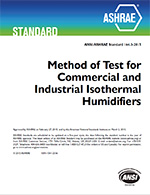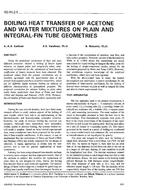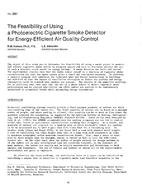From August through November, 1977, six identical west-facing office spaces on the 28th floor of a high-rise building in Phoenix, Arizona, were used for an extensive series of tests to determine sun-control capabilities of various glazing materials with internal shading devices. Each space had two 3 foot by 6 foot windows which were originally glazed with 1/4 inch bronze float glass. For the test program, this glazing was replaced in five rooms with other types of glass as described in the paper. Thermal and illumination tests were then run on approximately forty different types of roller shades, films and Venetian blinds.
Measurements were made of exterior and interior total solar and visible radiation; temperatures of outdoor and indoor air, glazing and shade materials; indoor and outdoor air velocities. Subjective evaluations of human comfort were also made and both total illumination and ESI were determined at selected locations. The objective of the tests was to determine the ability of the various glazing combinations to admit daylight and to admit or exclude solar radiation. This paper summarizes the program’s solar aspects; a subsequent paper, to be coauthored with J. W. Griffith, will discuss the illumination aspects.
Citation: Symposium, ASHRAE Transactions, Volume 85, Part 2, Detroit, MI
Product Details
- Published:
- 1979
- Number of Pages:
- 13
- File Size:
- 1 file , 590 KB
- Product Code(s):
- D-DE-79-05-3


